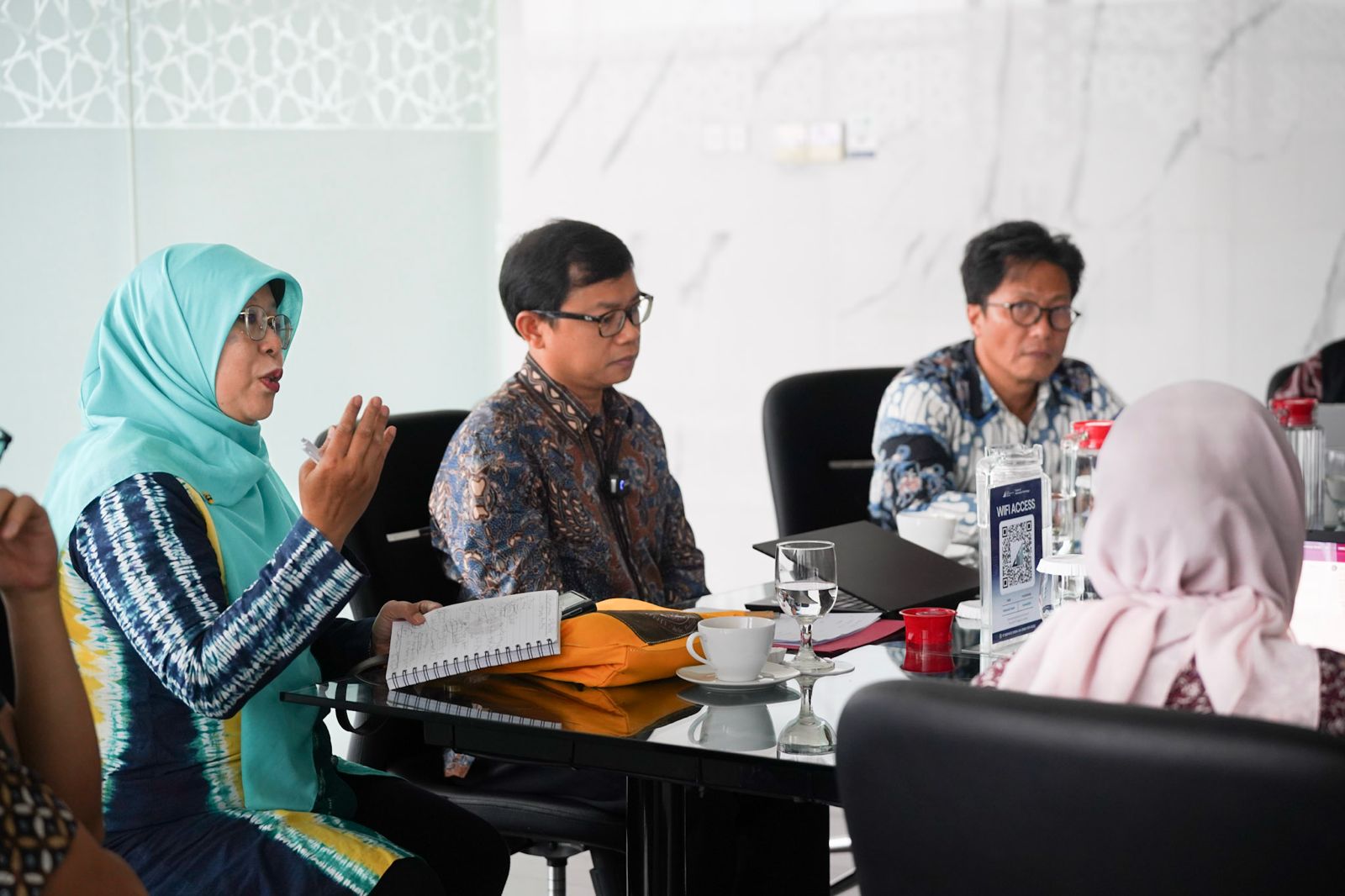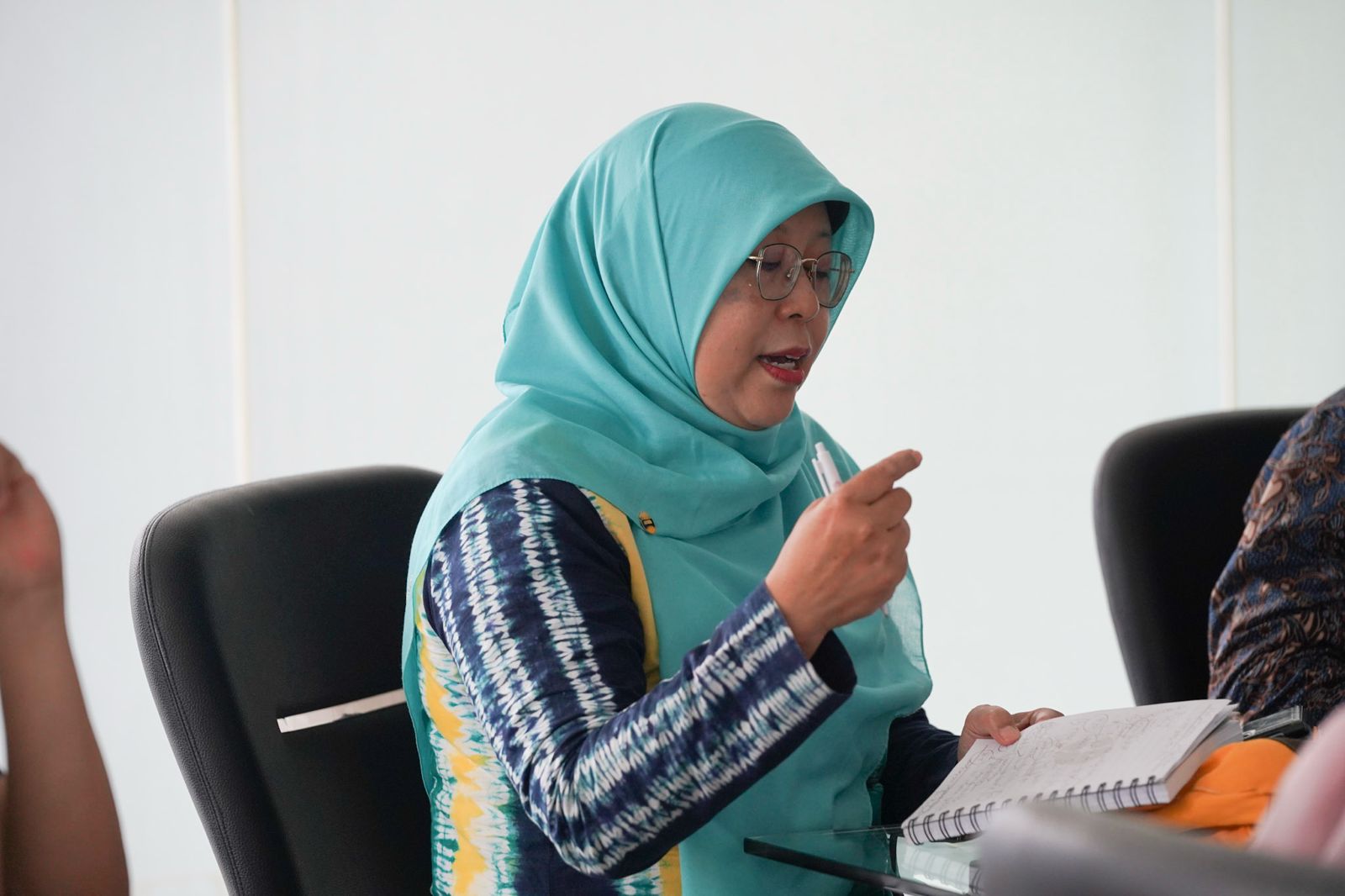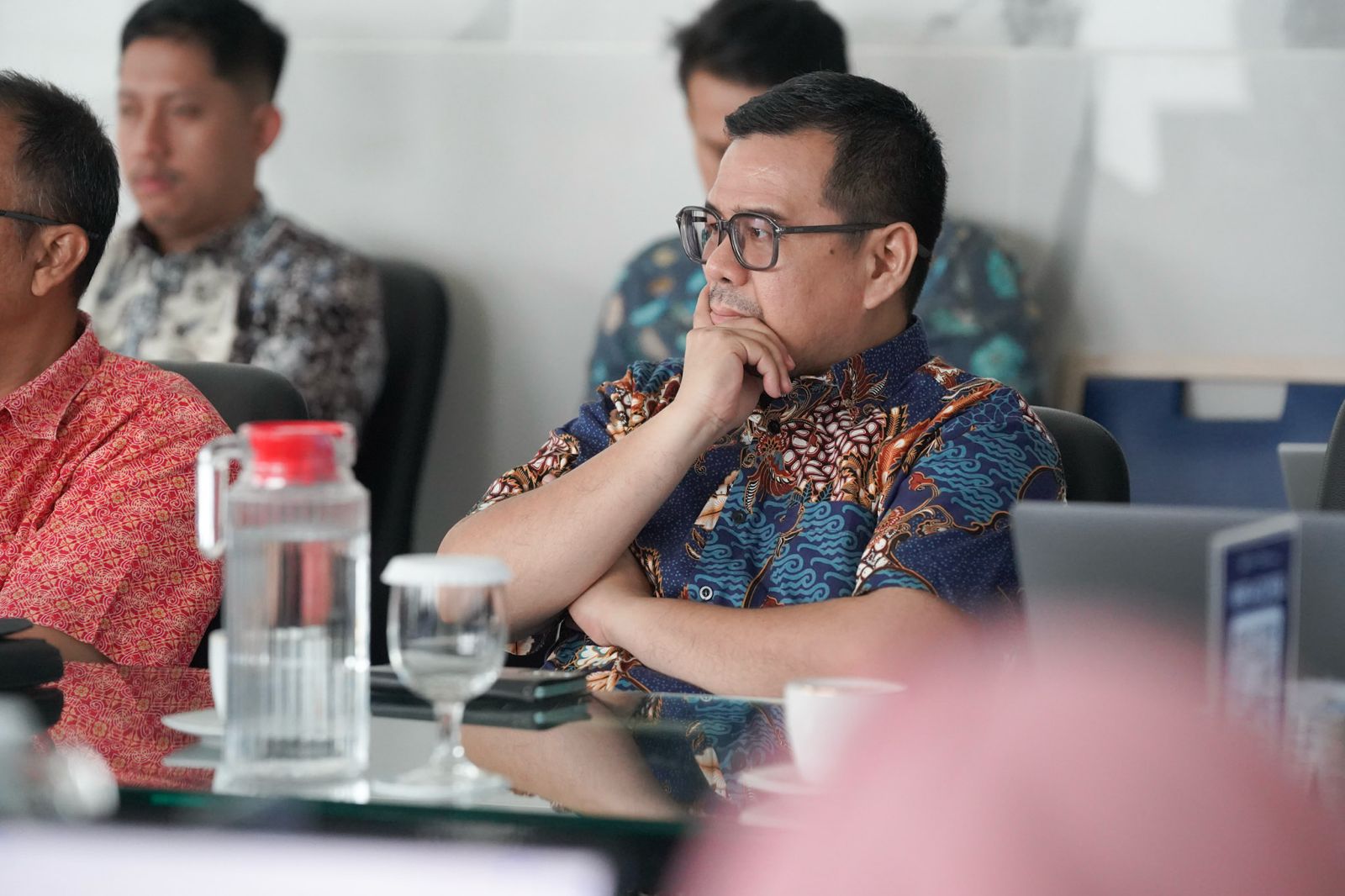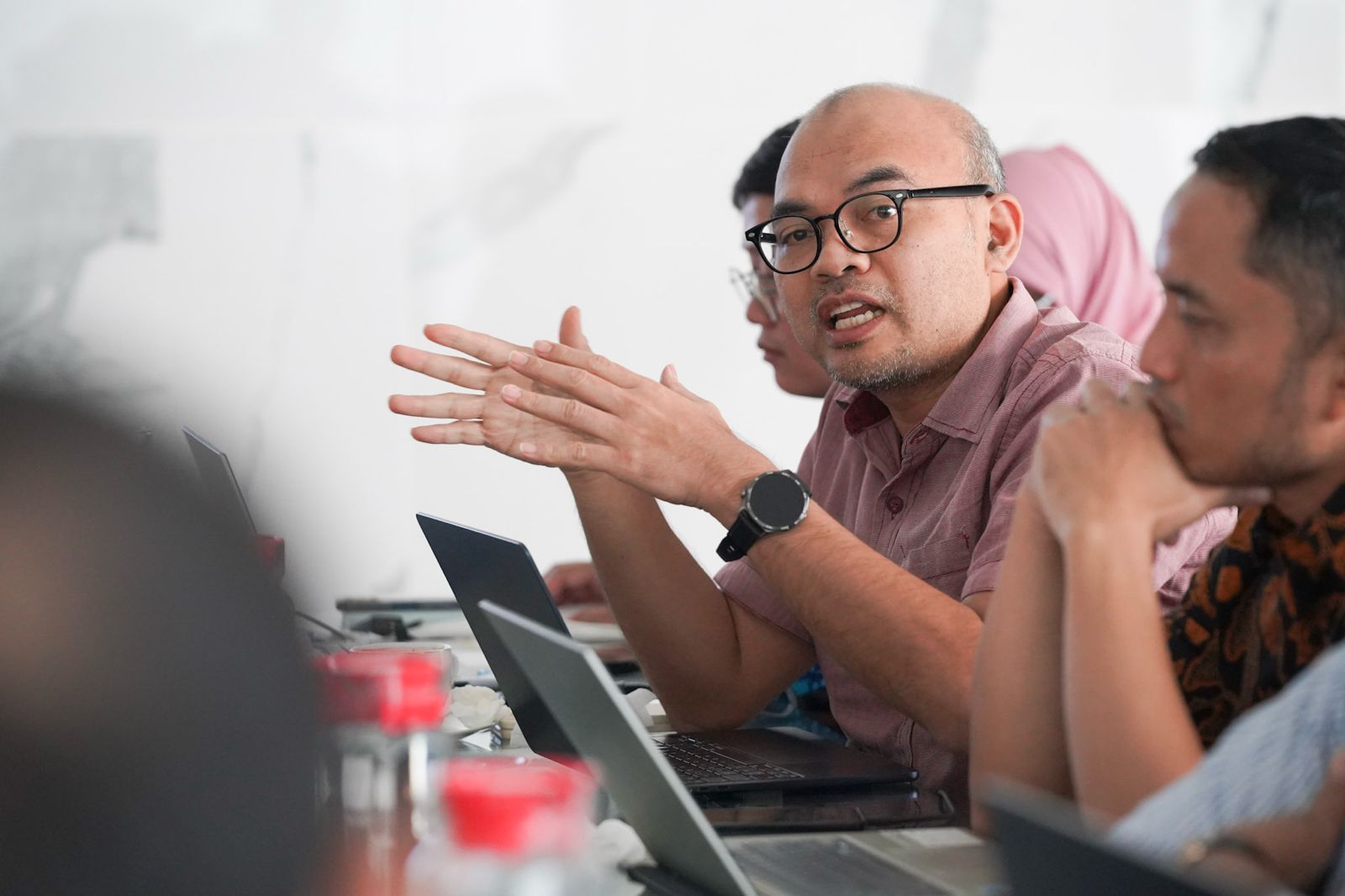More From News
Welcoming Ramadan with a Fresh Spirit: UIII Inaugurates New Mosque Board
February 13, 2026
November 6, 2025
Contributor: Supriyono | Photo: Atia Adjani

The UIII Faculty of Education (FoE) hosted a thought-provoking roundtable discussion titled “UIII at the Crossroads: Political Support, Financial Sustainability, and Survival Strategies.” The event brought together UIII’s university leaders, faculty members across disciplines, and education staff to engage in a candid reflection on UIII’s current position and future direction as a world-class university with Islamic identity.
The discussion, held at the Rectorate Building, was facilitated by the Faculty of Education as part of its ongoing commitment to fostering intellectual dialogue around institutional development and higher education reform.
In her opening remarks, Prof. Nina Nurmila, PhD, Dean of the Faculty of Education, described the session as a moment of self-reflection and shared vision. She emphasized that UIII’s strength lies in its ability to view itself critically and collectively.
 “Today we are not only talking about UIII’s administrative structure or funding model,” Prof. Nina said. “We are talking about ‘us’. To become a world-class university, we must be visionary, but also grounded in our shared values and identity.”
“Today we are not only talking about UIII’s administrative structure or funding model,” Prof. Nina said. “We are talking about ‘us’. To become a world-class university, we must be visionary, but also grounded in our shared values and identity.”
The roundtable featured Dr. Budi Waluyo, Scholar-in-Residence at the Faculty of Education and Associate Professor at the Department of State Financial Management, PKN STAN, as the discussion chair. Drawing from his research on Islamic higher education reform and public management, Dr. Waluyo explored the “existential questions” confronting UIII: existence, identity, and purpose.
 He posed a central question that resonated with participants: “Are we fading away, or are we becoming more visible and leading?” Through this question, Dr. Waluyo invited attendees to examine the university’s standing amid evolving political support, increasing financial demands, and the push for autonomy within Indonesia’s Islamic higher education landscape.
He posed a central question that resonated with participants: “Are we fading away, or are we becoming more visible and leading?” Through this question, Dr. Waluyo invited attendees to examine the university’s standing amid evolving political support, increasing financial demands, and the push for autonomy within Indonesia’s Islamic higher education landscape.
Dr. Waluyo’s presentation outlined the critical balance UIII must maintain between state dependency and institutional independence. He highlighted the importance of building sustainable income streams through research collaborations, consultancy, and asset optimization.
“When I first came to UIII, I was mesmerized by the mosque. It embodies the Quranic description of heaven — a dwelling beneath which rivers flow. This truly reflects the spirit of UIII, envisioned as a place where such beauty and serenity can flourish,” Dr. Waluyo said.
“Perhaps it was designed to evoke that very feeling — that upon entering this campus, one feels as though entering paradise. As the architect once envisioned, the mosque should have rivers flowing around it to symbolize heaven itself. Now, it is up to us to bring that vision to life,” Dr. Waluyo added.
Moderated by Dr. R. Alpha Amirrachman, Lecturer at the Faculty of Education, the discussion evolved into a dynamic exchange among participants representing UIII’s various faculties. Conversations centered on political advocacy, talent management, governance reform, and the preservation of Islamic academic identity within global education frameworks.
Through this roundtable, the Faculty of Education reaffirmed its role not only as an academic hub but also as a catalyst for institutional reflection, inviting the broader UIII community to engage in the ongoing question: Where are we heading, and who do we want to be?

Universitas Islam Internasional Indonesia